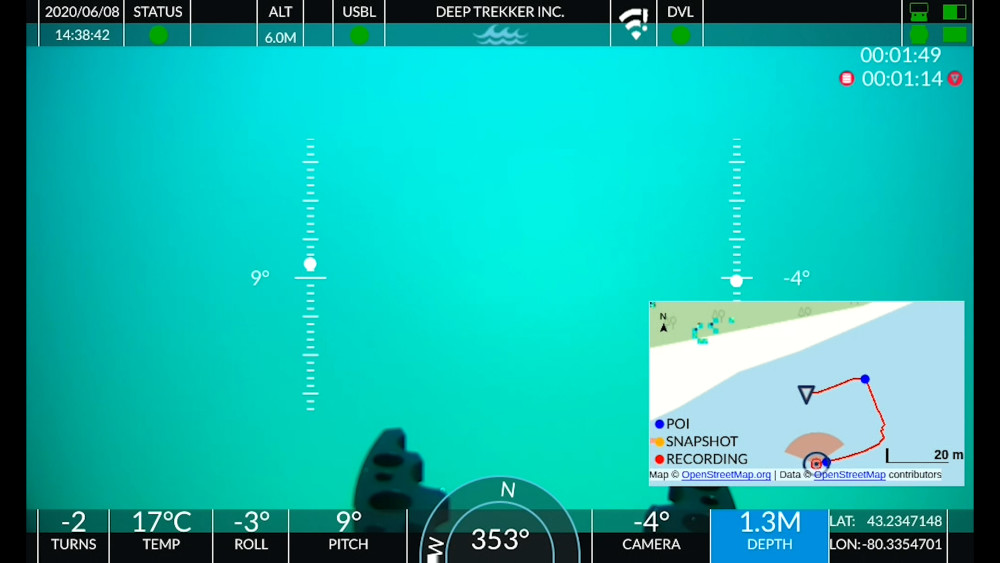Home › Forums › General › Financial, Tax and Insurance › US Tax Foreign Earned Income Exclusion.
- This topic has 11 replies, 4 voices, and was last updated 13 years, 7 months ago by
Spacer.
-
AuthorPosts
-
November 16, 2009 at 8:29 am #3119
Spacer
ParticipantThis question is for Americans living overseas and working offshore who are familiar with tax US laws.
Taxman claims money I earned was from working in international waters.
I claim I was working in a foreign country. 60 miles offshore but still in country’s Exclusive Economic Zone.
Who is right? Me or the taxman?
Btw, IRS Pub 54 defines foreign country as follows "The term “foreign country” includes the country’s airspace and territorial waters. It also includes the seabed and subsoil of those submarine areas adjacent to the country’s territorial waters over which it has exclusive rights under international law to explore and exploit the natural resources."
I believe International law is based on the following:
UNITED NATIONS CONVENTION ON THE LAW OF THE SEA
PART V
EXCLUSIVE ECONOMIC ZONE
Article55
Specific legal regime of the exclusive economic zone
The exclusive economic zone is an area beyond and adjacent to the territorial sea, subject to the specific legal regime established in this Part, under which the rights and jurisdiction of the coastal State and the rights and freedoms of other States are governed by the relevant provisions of this Convention.
Article56
Rights, jurisdiction and duties of the coastal State in the exclusive economic zone
1. In the exclusive economic zone, the coastal State has:
(a) sovereign rights for the purpose of exploring and exploiting, conserving and managing the natural resources, whether living or non-living, of the waters superjacent to the seabed and of the seabed and its subsoil, and with regard to other activities for the economic exploitation and exploration of the zone, such as the production of energy from the water, currents and winds;
Article57
Breadth of the exclusive economic zone
The exclusive economic zone shall not extend beyond 200 nautical miles from the baselines from which the breadth of the territorial sea is measured.WHo is right, me or taxman?
November 17, 2009 at 1:34 am #25552Craig Thorngren
ParticipantSpacer,
let me preface this with, it really doesn’t matter what i or anyone else thinks is correct. If the IRS has said it’s defintion is "blah blah blah" than the only way your going to get that changed is getting a good tax attorney…
That being said, I would side with you. The biggest factor though is going to be wether you paid taxes to that other country. If you did, it seems pretty straight forward that you were working in that foreign country…
Chief
November 17, 2009 at 6:37 am #25553SMURF
ParticipantTo all those yank expat’s. I have been doing this for a long time so here is the tip.
The tax you have to pay depends on where is your legal residence during the tax year you are claiming. If you are living outside of USA for 330days out of the year, none consecutively, you are entitled up to $88,000, tax exempt from US tax.
This means, you have to be a legal residence of that certain country you reside in and pay that country’s tax.
This law is to protect you from paying double taxes, US and foreign, that is all. If you do not reside in that certain foreign country legally and do not wish to return to USA in the future, then don’t pay the US taxes.
Otherwise, pay the damn tax and shut-up 😀
Also, if you do reside in foreign country legally and do pay taxes and national insurance, you may be entitled to both foreign national insurance and US social security benefits.
If still confused talk with local accountant familiar with US tax law, not with IRS flunkies!!November 17, 2009 at 9:09 am #25554James McLauchlan
ParticipantAs with any tax authority requiring proof of residence I would suspect that the US tax authorities would need to see evidence of residence permits issued by the said foreign country.
The usual ‘tourist’ visa would probably not cut it, as it indicates your status as per it’s title: Tourist.
November 17, 2009 at 10:11 am #25555SMURF
ParticipantI’m quite sure they do require you to have a proof if and when you are audited. 8)
In the meantime, all you have to do is on form2555 of supplemental form, indicate which country you are living in and number of days you are legally residing in, name of company you are working for and state that you are obligated to pay foreign tax. Even though you might be self-employed, you are obligated to pay foreign tax in order to qualify for US tax exempt. You do not actually have to live there, just have to have legal residence, ie. residence visa, alien registration card. If you return to USA for more than 30days out of the year, you are not qualified even though you legally reside and work overseas or offshore.
To make the long story short, you will have to pay income tax either in US or in foreign country, unless you do not plan on going back to States in your lifetime.
Good Luck!!November 17, 2009 at 3:20 pm #25556Spacer
ParticipantThe question has nothing to do with where I live. It has to do with where my earnings were made.
November 17, 2009 at 5:15 pm #25557SMURF
ParticipantAccording to my information, you are ineligible to claim anything on your foreign earned income on US tax. It all pertains to where you’ve lived when you earned the money, not where you made the money.
See below:
http://www.irs.gov/businesses/small/international/article/0,,id=97130,00.htmlNovember 17, 2009 at 5:31 pm #25558James McLauchlan
ParticipantThis isn’t an American related question. It’s more about international law.
Taxman claims money I earned was from working in international waters.
I claim I was working in a foreign country. 60 miles offshore but still in country’s Exclusive Economic Zone.
Who is right? Me or the taxman?
You are not right to claim that you working in a foreign country
You are right to claim that you are still in a foreign country’s exclusive economic zone, which extends up to 200 miles from the shore.
The Taxman is right to claim that you are working in international waters.
In general terms:
International waters
The open seas of the world outside the territorial waters of any nationTerritorial waters
Territorial waters only extend to 12 miles (22 km) from the shore.
Beyond 12 miles (22 km) you are working in International waters whether it is within the countries exclusive economic zone or not.The image below might help.
 November 17, 2009 at 5:52 pm #25559
November 17, 2009 at 5:52 pm #25559Spacer
ParticipantJames, I am going on IRS’s own definition of foreign country.
This is straight out of IRS pub 54.
"The term “foreign country” includes the country’s airspace and territorial waters. It also includes the seabed and subsoil of those submarine areas adjacent to the country’s territorial waters over which it has exclusive rights under international law to explore and exploit the natural resources."
November 17, 2009 at 6:13 pm #25560James McLauchlan
ParticipantHey! I tried 😉
I see what you are getting at, but somewhere in all their laws it will most likely say ‘except for the purposes of ROV pilots paying tax’ when in those instances it will be deemed once again as international waters!
To be sure you don’t need our barrack room type tax advice, you need a US tax lawyer to give you the US law on this. If I were you I would pay a few bucks to get this information as it may save you loads of grief in the longer term.
Good luck with it :tup:
November 18, 2009 at 4:06 pm #25561Spacer
ParticipantThanks James, I will be looking for a tax lawyer when I get home.
If I am right it could mean a huge difference for us expats. I will post the outcome of my appeal on this page.
May 16, 2011 at 10:43 am #25562Spacer
ParticipantBottom line….
IRS conceded. Court will rule my favor 😀
-
AuthorPosts
- You must be logged in to reply to this topic.



